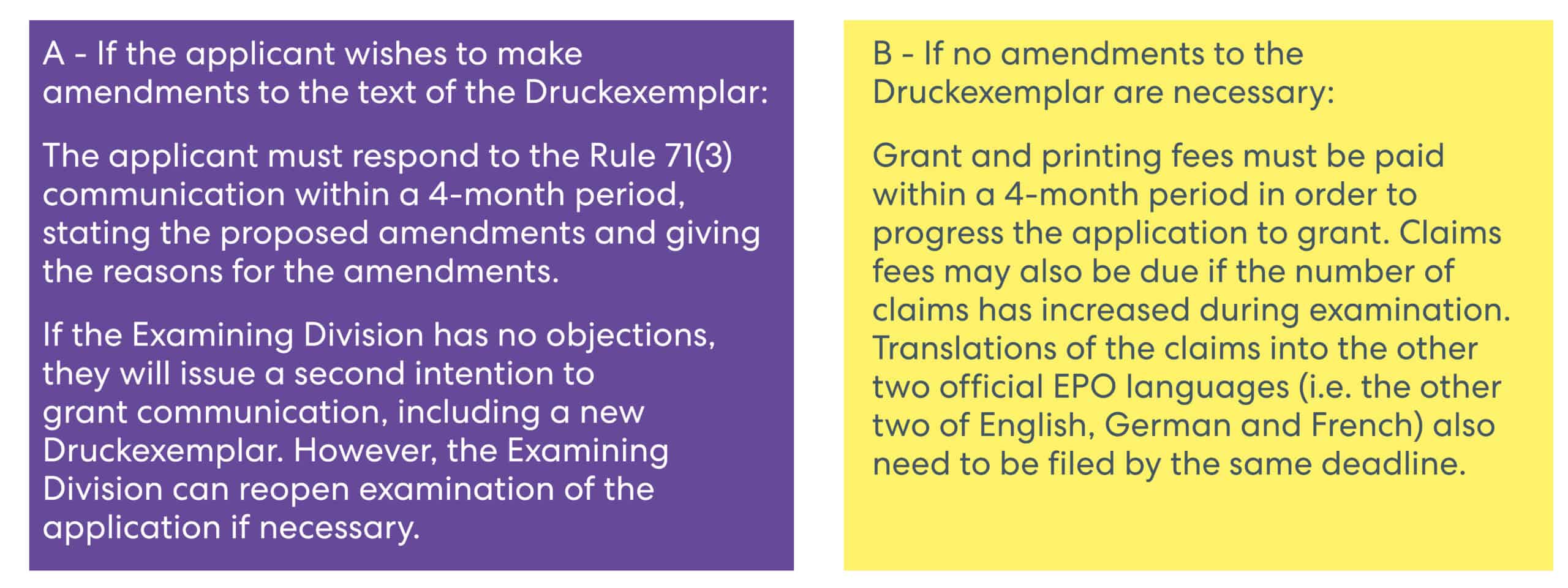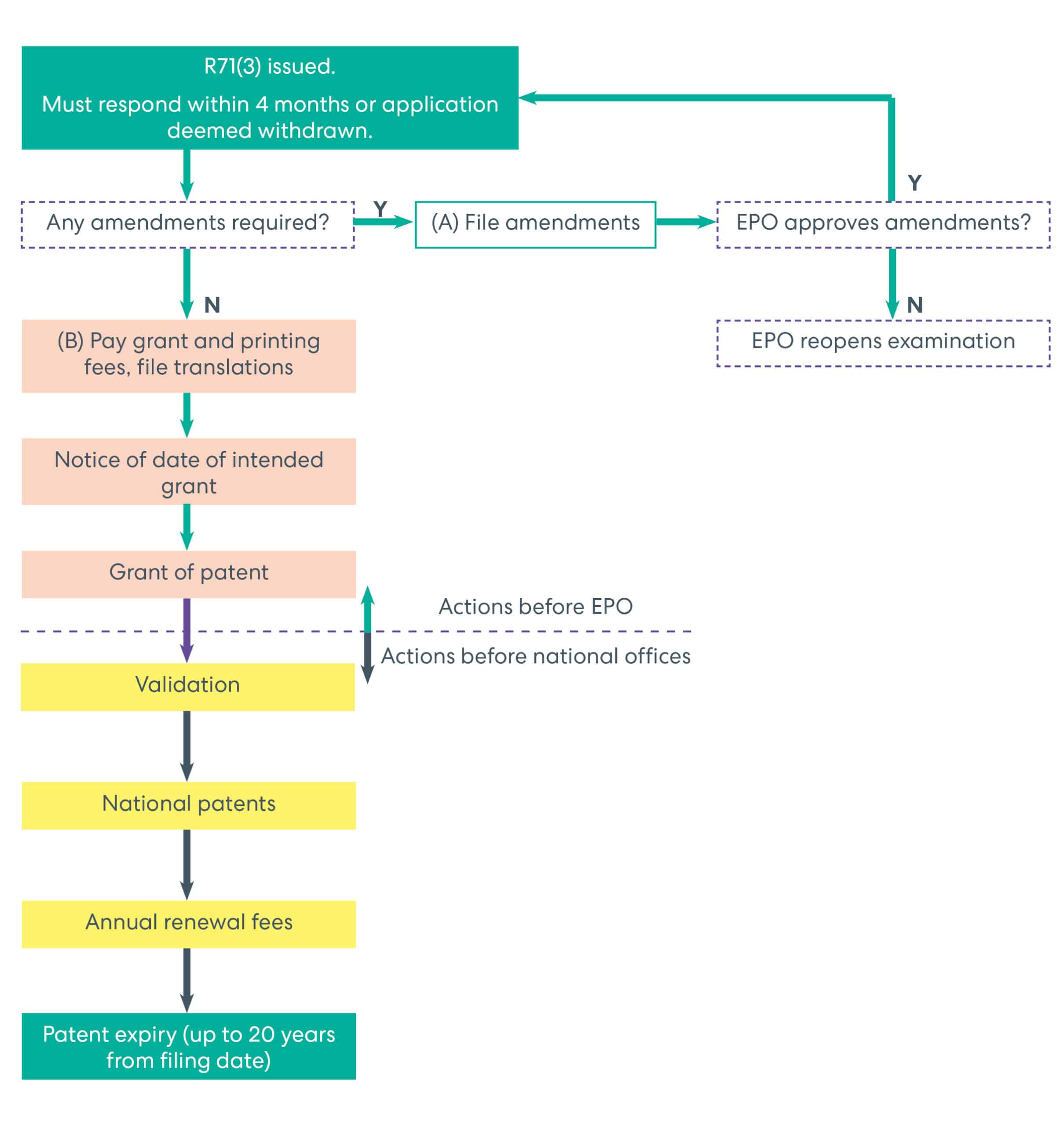
After substantive examination, if an Examiner considers that a European patent application meets the requirements of the EPC, the Examiner will issue a communication indicating their intention to grant the application (a communication under Rule 71(3) EPC).
The communication is accompanied by the version of the application text that the EPO intends to grant, known as the “Druckexemplar”. It may include amendments suggested by the Examiner to address any minor deficiencies that were not rectified during examination. The Druckexemplar is taken to be the authentic text of a granted patent, and so it is important to check the text thoroughly.
What happens next depends upon whether the applicant is happy with the text of the Druckexemplar. If the applicant does not reply to the communication within 4 months, by completing the acts under A or B below, the application will be deemed withdrawn.

Decision to grant and date of grant
After the applicant has approved the text, paid the fees and filed the claims translations, the EPO issues a “Decision to grant” notice stating the date on which the patent will be granted. The grant of the patent will be mentioned in the European Patent Journal on its date of grant.
It is important to note that a divisional application (a patent application that is “divided” out from another patent application) can only be filed whilst the parent is still pending, i.e. up until the day before the date of grant.
Validation
Depending on the EPO states in which patent protection is sought, it may be necessary to file translations with national patent offices and/or pay further fees for the patent to take effect in those national states, in a process referred to as “validation”. The required acts and time limits vary by state, and so it is important to check the requirements for the desired states carefully. After validation, the EP patent effectively becomes a “bundle” of national rights.
Opposition
Within 9 months of the date of grant, any third party may file an opposition against the patent, with the aim of getting the patent revoked or limited centrally at the EPO. The grounds upon which a patent can be opposed are that the subject-matter of the patent is not patentable (e.g. not new or not inventive), that the invention is not disclosed clearly and completely enough for a person skilled in the art to carry it out, and/or that the patent’s subject-matter extends beyond the content of the application as filed.
Opposition proceedings are typically a long process involving rounds of submissions by each of the parties, followed by a hearing where an EPO oppositions board decides on the outcome. At the end of the proceedings, the patent may be maintained as granted, maintained with amendments or revoked in full. The decision will apply to all of the states designated in the European Patent, and can be appealed.
National Renewal Fees
To keep the “bundle” of granted national rights in force in each state in which the patent was validated, annual renewal fees must be paid to the national offices. These amounts vary depending on the state, but typically increase as the patent gets older. A patent can be kept in force up until 20 years from the filing date of the application.
Enforcement
Once a patent has been granted, i.e. after the date of grant, it can be enforced. As a European patent is effectively a bundle of national rights, any enforcement proceedings must be started separately in each state.
UPC
As of 1 June 2023, applicants can opt to have a single unitary patent for certain EPC states (those that are both part of the European Union and which have signed and ratified the UPC agreement), covering at least 15 EU countries including France, Germany and Italy. The request for a unitary patent must be filed within one month of the mention of grant. For member states of the EU not part of the UPC Agreement and countries that are not part of the EU, such as the UK, national validation will still be required in addition to the unitary patent.
For more information on the UPC, please see here.
Sources of Further Information and Advice
This is for general information only and does not constitute legal advice. Should you require advice on this or any other topic then please contact hlk@hlk-ip.com or your usual HLK advisor.
A PDF of this information can be found here.